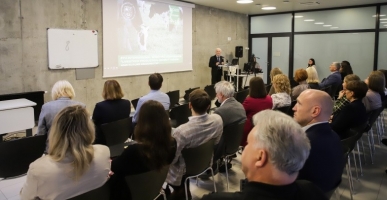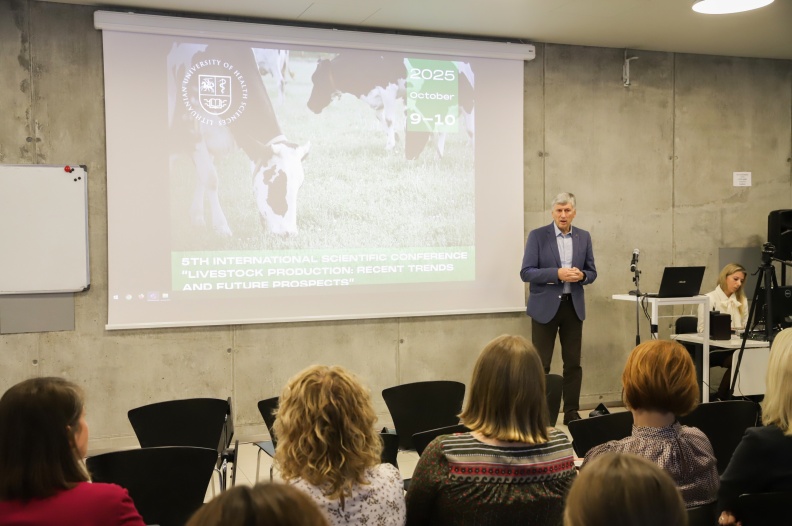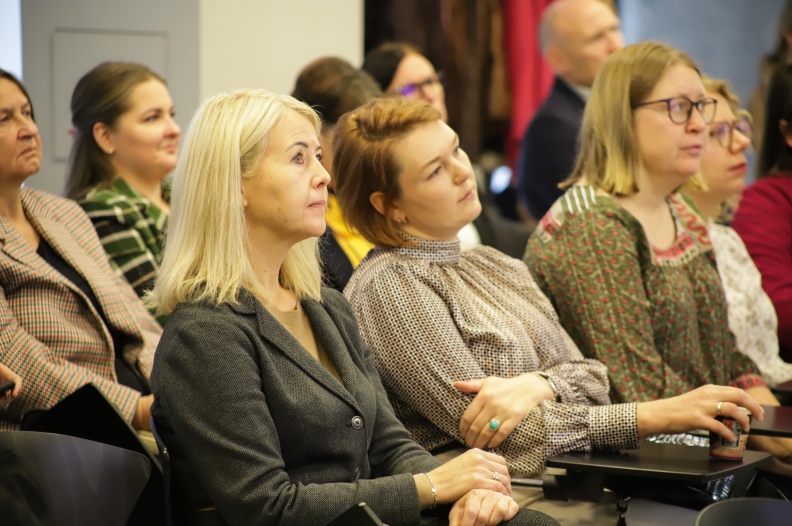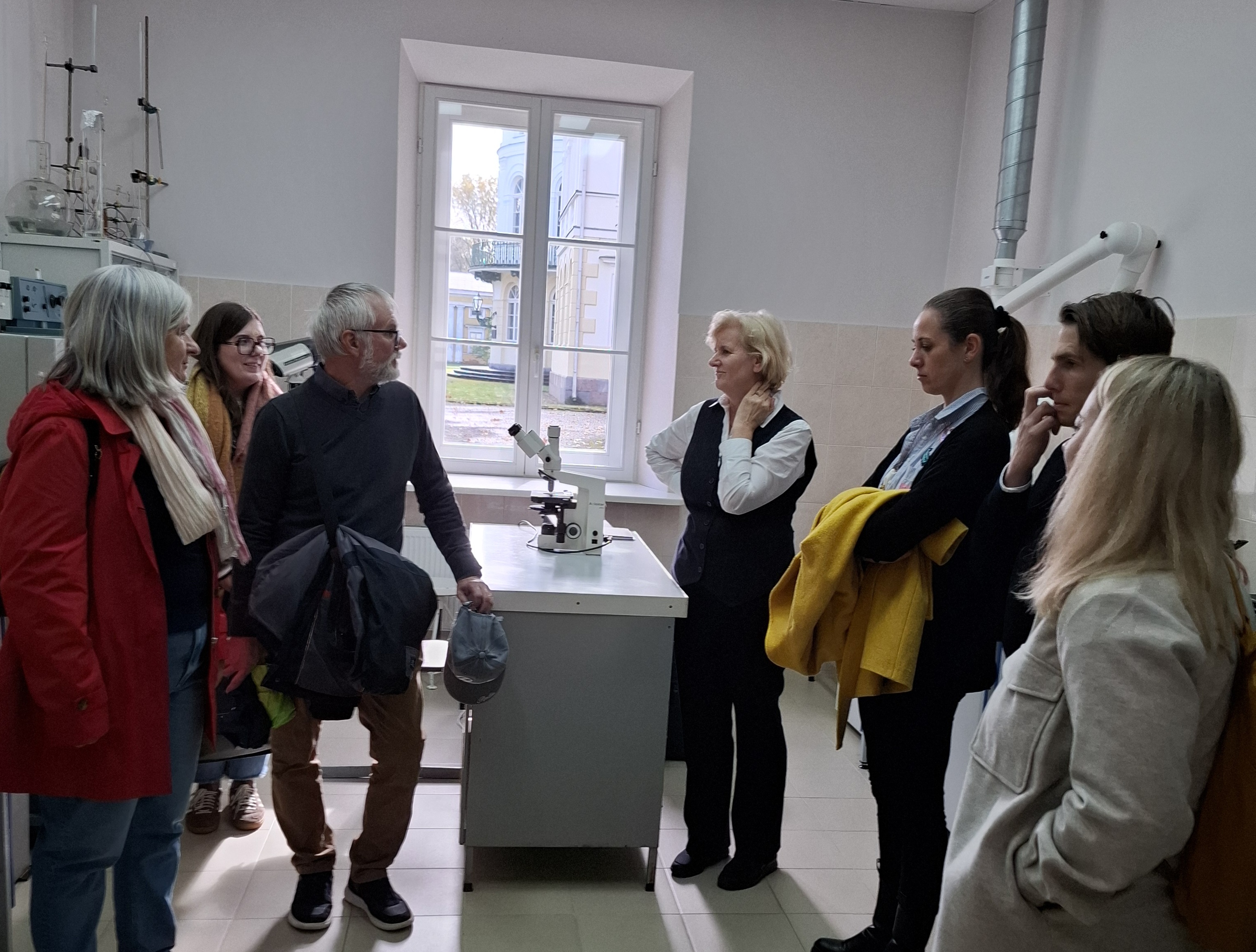Events
Technology, Tradition, and Trust: Harmonising Consumer Needs and Agricultural Technologies for Sustainable Food Production
14 10 2025
News from the 5th International Scientific Conference ‘Livestock Production: Recent Trends and Future Prospects’, 9-10 October 2025, Lithuanian University of Health Sciences, Kaunas, Lithuania
Technology, Tradition, and Trust: Harmonising Consumer Needs and Agricultural Technologies for Sustainable Food Production
The 5th International Scientific Conference ‘Livestock Production: Recent Trends and Future Prospects’ was organised by the Faculty of Animal Sciences of the Lithuanian University of Health Sciences (LSMU, Lietuvos sveikatos mokslų universitetas), in collaboration with the Animal Science Institute of the LSMU and the Division of Agricultural and Forestry Sciences of the Lithuanian Academy of Sciences. The conference brought together researchers, industry representatives, and policymakers to discuss the latest developments in animal nutrition, breeding, genetics, and production quality. The thematic discussionscrystall9ised the central focus of the conference: how to balance consumer expectations with agricultural production technologies. This challenge calls for the integration of sustainability, innovation, and ethics into modern livestock production and food systems. As consumer awareness and expectations continue to evolve, the agricultural sector must adapt to ensure high food quality, environmental responsibility, and long-term system resilience.

When discussing consumer expectations, it is important to emphasise that modern consumers increasingly seek food that is safe, nutritious, and sustainably produced. Transparency, traceability, and clear labelling – such as organic, local, or fair-trade certifications – play a crucial role in fostering consumer trust and confidence. At the same time, the value of traditional agricultural technologies should be better communicated to the public to prevent misconceptions or unrealistic expectations regarding ‘absolute’ ecological practices. Ultimately, the primary goal of the agricultural sector remains to ensure the availability of sufficient quantities of high-quality food for the population, while maintaining a balance between sustainability and productivity. To achieve this, innovation and traditional knowledge must coexist. Advances in precision agriculture, smart farming, and biotechnology are revolutionising food production by reducing environmental footprints and improving efficiency in the use of natural resources such as water, fertilisers, and energy. Meanwhile, local and traditional farming methods continue to play a vital role in maintaining biodiversity, preserving cultural heritage, and ensuring food identity. The integration of these approaches helps to build resilient agrifood systems capable of withstanding climate change and global market fluctuations.

Furthermore, agricultural research and innovation increasingly target nutritional and functional quality improvement. The development of plant and animal products enriched with essential nutrients, bioactive compounds, or improved digestibility offers a way to meet specific dietary needs and enhance public health outcomes. In parallel, efforts to reduce anti-nutritional factors and improve feed efficiency contribute to animal welfare and overall production sustainability.
In the context of sustainability, circular economy principles are becoming increasingly important. Repurposing agricultural by-products such as using crop residues, processing waste or alternative raw materials for feed, compost, or renewable energy can significantly reduce waste and enhance system efficiency. These strategies not only minimise environmental impact but also create additional economic value for farmers and processors.
Effective progress in this field requires strong collaboration among stakeholders, including producers, researchers, policymakers, educators, and consumers. Education and outreach initiatives play a vital role in bridging the knowledge gap and promoting a more accurate understanding of agricultural technologies, from biotechnology and genomics to sustainable livestock management.

Sustainability extends beyond environmental protection: it also includes economic and social equity. Ensuring fair market conditions, supporting small-scale farmers, and maintaining affordable access to food are fundamental to achieving a balanced and inclusive food system.
In summary, balancing consumer needs with agricultural technologies requires harmonisation of innovation, transparency, and sustainability. The ultimate goal is to produce food that meets modern consumer expectations without compromising environmental integrity, economic viability, or social fairness. The discussions at the conference reaffirmed that collaboration, education, and responsible innovation are essential for shaping sustainable livestock production and the food systems of the future.
Academician Elena Bartkienė
Photography M. Verikaitė
